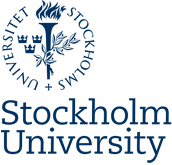Structure-based drug design relies on predicting or determining the position of small molecules within a three-dimensional representation of the protein structure and estimating the affinity of ligands to target protein with considerable accuracy and efficiency. Synchrotron based fragment-screening is a well-established and powerful approach to early drug discovery. It have been playing an important role in combating the current COVID-19 pandemic. However, the experimental overheads have historically been too high for it to be widely used for primary screening.
Electron diffraction techniques, such as 3D electron diffraction (3D ED, also known as microcrystal electron diffraction, MicroED) have the capability of providing high quality structural information required for drug discovery. By allowing data collection from tiny crystals, the method will enable new target (difficult to crystalize) proteins to be studied. Furthermore, small macromolecular crystals may have less defects and lower mosaicity than larger crystals, and any external changes such as ligand soaking or rapid flash-cooling can be applied faster and more uniformly. With the vast availability of TEMs, 3D ED/MicroED has the potential to make fragment-based drug discovery widely available to scientific and industrial communities.
The main responsibilities of the student will be to develop and apply 3D ED/MicroED techniques for study protein-ligand interactions. The task will have a strong focus on improving specimen preparation, data collection and data analysis protocols in order to achieve high throughput and accurate structure analyses required for structure based drug discovery. The candidate will work in collaboration with biochemists, physical chemists, organic chemists and cryogenic electron microscopists at SU, SciLifeLab and all over the world. The student will also have the opportunities to collaborate with leading pharmaceutical companies such as AstraZeneca.
The applicant should have excellent skills in the English language, both written and spoken. The applicant should easily take initiatives and cooperate well in groups. Highly motivated students with a background in electron microscopy, chemistry, biochemistry, structural biology and an interest in innovative and multi-disciplinary research are encouraged to apply. A basic training in cryo-EM or MicroED will be of advantage.
The PhD student will work in association with the Innovative Training Network – NanED project and collaborate with PIs, who are experts in electron crystallography, all over Europe. The project NanED has received funding from the European Union’s Horizon 2020 research and innovation programme under the Marie Skłodowska Curie grant agreement No 956099.
Special eligibility criterias
Applicants must satisfy the eligibility requirements for an ESR under the Horizon 2020 ITN Programme at the date of recruitment; in particular, they should be eligible to be appointed as an ESR by satisfying the following criteria:
- to have less than 4 years research careers after Undergraduate/Masters graduation (this is cumulative research experience and does not include management/industrial or other work experience);
- to not hold a PhD degree (PhD candidates under 4 years of registration and before completion may apply);
- to not have resided or carried out their main activity (work, studies, etc) in Sweden for more than 12 months (cumulative) in the three years immediately before their recruitment (meant as the first day of the employment of the researcher for the purposes of the action (i.e. the starting date indicated in the contract). Compulsory national service and short stays such as holidays are not taken into account.
Apply via Stockholm University PhD Recruitment System: https://www.su.se/english/about-the-university/work-at-su/available-jobs/phd-student-positions-1.507588?rmpage=job&rmjob=14564&rmlang=UK

 Continue with Facebook
Continue with Facebook



